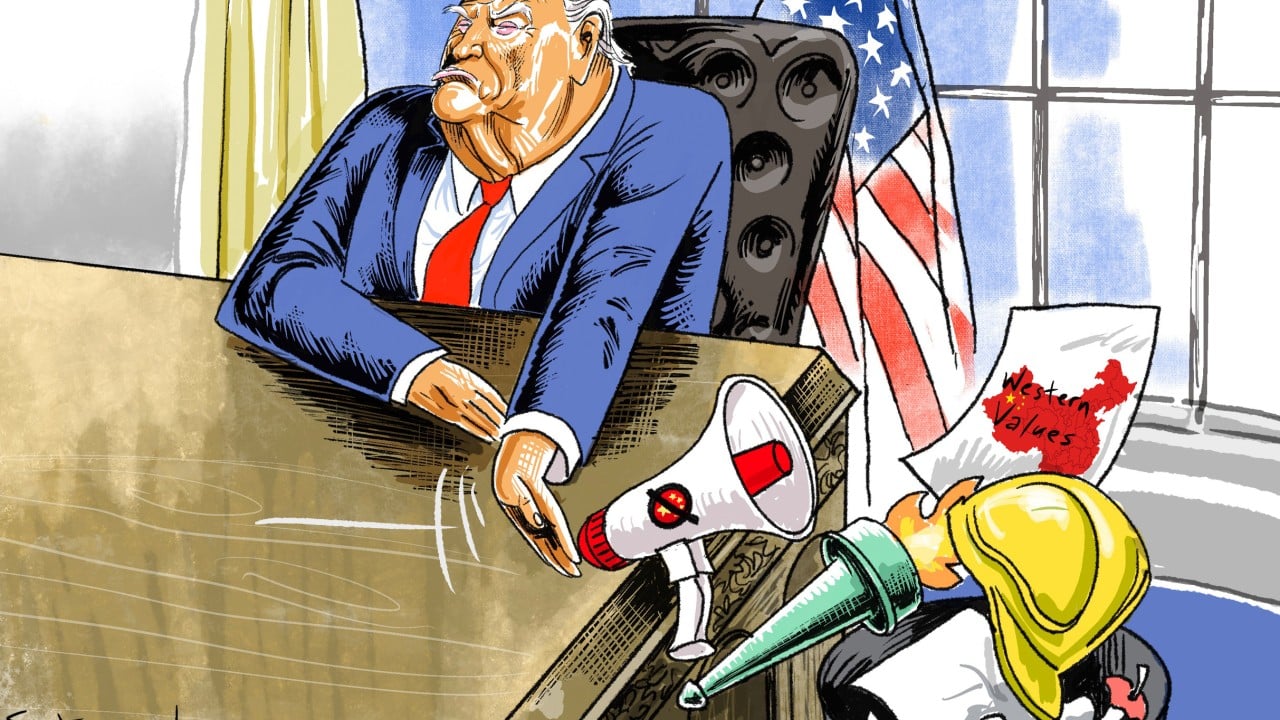As someone born in the 1960s in China, one of the earliest lessons our generation learned in school was to be vigilant about the perceived dangers of American conspiracies and attempts aimed at subverting and overthrowing the Communist Party through peaceful means.
Advertisement
Through classroom teachings, propaganda films and slogans plastered prominently along the streets, we were repeatedly exposed to Chairman Mao Zedong’s warnings about the threat of “peaceful evolution”, encapsulated in his assertion that American imperialists would never give up their desire to subjugate China.
Mao began sounding the alarm about a peaceful evolution as early as 1959, responding to US policies advocated by John Foster Dulles, then the secretary of state, which marked the initial stages of the ideological Cold War. This strategy aimed to undermine socialist countries like the Soviet Union and China by promoting Western values and inciting dissent against the Communist Party’s rule.
Mao famously remarked that while there was little hope for the United States to incite change among the Chinese people within two generations, the outcome after three generations was uncertain.
Interestingly, three generations later, China has emerged as one of the world’s largest economies and a rising power increasingly viewed as a challenger to America’s superpower status. Meanwhile, the US has shifted away from nation-building efforts and vowed to stop offering lectures on how others should live or govern.
Advertisement
In the first overseas trip of his second term last month, US President Donald Trump told a business crowd in Saudi Arabia that “the so-called nation-builders wrecked far more nations than they built – and the interventionalists were intervening in complex societies that they did not even understand themselves”.

